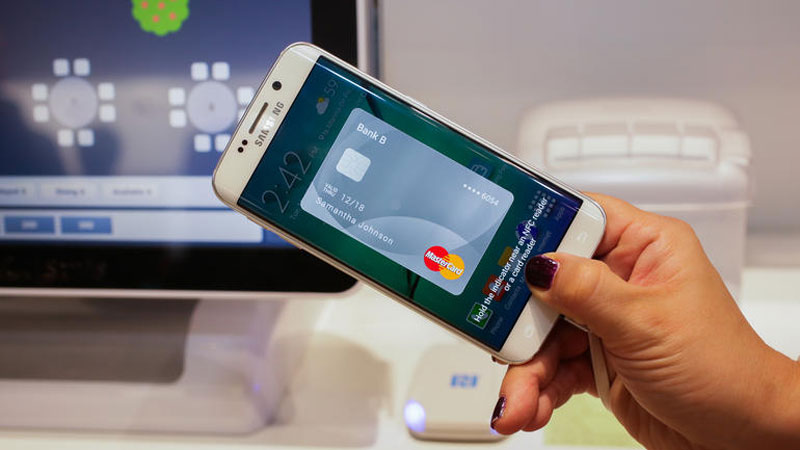Samsung Pay: how does it differ from Apple Pay?
South Korea and the US will soon have a choice of mobile payment systems – and the UK is next in line

A free daily email with the biggest news stories of the day – and the best features from TheWeek.com
You are now subscribed
Your newsletter sign-up was successful
Samsung is launching its mobile payment system in the US and South Korea – and says the UK will be the first in Europe to get access to Samsung Pay. The system follows in the wake of Apple Pay, which came to the UK in July. The announcement came at Mobile World Congress, says the Daily Telegraph, where Samsung unveiled its Galaxy S6+ and Note 5 smartphones.
What is the system for?
Samsung Pay allows users to pay for goods or services by presenting their phones in shops, restaurants or other outlets – with no plastic credit or debit card required. With users increasingly doing their online banking via smartphones, this next evolutionary step seemed inevitable, says Know Your Mobile.
The Week
Escape your echo chamber. Get the facts behind the news, plus analysis from multiple perspectives.

Sign up for The Week's Free Newsletters
From our morning news briefing to a weekly Good News Newsletter, get the best of The Week delivered directly to your inbox.
From our morning news briefing to a weekly Good News Newsletter, get the best of The Week delivered directly to your inbox.
How do you use Samsung Pay?
Users register their credit, debit or loyalty cards with the system – then leave their wallets at home. To pay for something, they flick through images of their cards on screen, just as they might leaf through their physical wallets, before selecting which one to use.
Is it exactly the same as Apple Pay?
No – the systems have different security measures and, more significantly, Samsung's version will work in more shops from the get-go because it is compatible with older card machines. Apple Pay uses NFC (Near Field Communication) technology to talk to a shop's card machine. So does Samsung – but it can also use the older MST (Magnetic Secure Transmission) as well.
A free daily email with the biggest news stories of the day – and the best features from TheWeek.com
What is MST?
MST is the older magnetic reader system – in modern tech terms it's prehistoric – which allowed you to swipe a card in the days before chip-and-pin and contactless payments. Perhaps surprisingly, swipe-and-sign is still the most common way to use a card in the US. You won't swipe your phone when using Samsung Pay – it wouldn't fit in the slot, obviously – but the phone will fool the reader into thinking that you have.
Is Samsung Pay secure?
Samsung says its system is very safe: no card details are stored in the phone or on any of Samsung's servers – and fingerprint recognition is used to pay. When a user registers a card, their bank sends a proxy card number or token to the phone. This means that anybody hacking into the phone remotely will only get that token, useless without the physical phone. Anybody who steals the phone won't be able to use it without a fingerprint – and won't have access to card details.
Will I need to buy a new phone?
Not necessarily – the existing Samsung Galaxy S6 or Galaxy S6 Edge will be able to run the system once the software is added. The forthcoming Gear A smartwatch and S6 Plus and Note 5 phones will also be compatible.
Why is Samsung Pay launching now?
The launch comes not long after Apple's similar system came online – and Google is expected to unveil its own Android Pay later this year. With the other two market-leading smartphone makers developing a payments system, Samsung was bound to do the same.
When can I start using Samsung Pay?
The service comes online in South Korea on 20 August and in the US on 28 September. The UK release date is still not confirmed but PC Advisor quotes Samsung as saying it will be "in the near future", and Alphr says "The service should be available all over the continent before the end of the year".